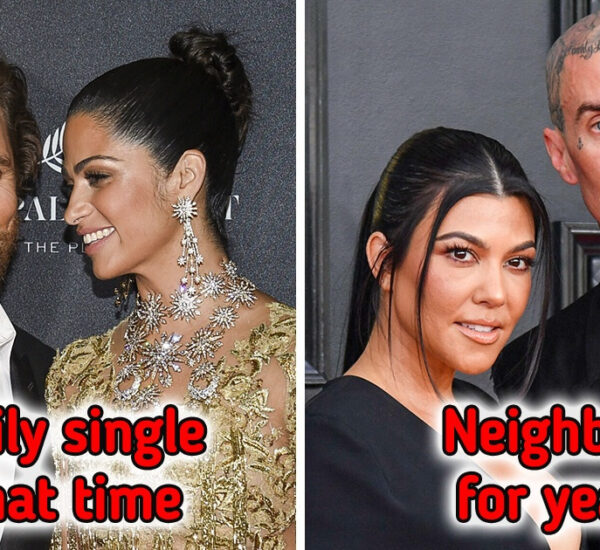Emotional expression plays a crucial role in our well-being and interpersonal relationships. However, it is observed that men often struggle with expressing their feelings compared to women. This article delves into the reasons behind this phenomenon, exploring societal expectations, cultural influences, fear of vulnerability, limited emotional vocabulary, and the impact on mental health. By understanding these factors, we can work towards breaking the barriers and promoting healthier emotional expression for men.
Emotional expression is a fundamental aspect of human interaction, allowing individuals to communicate their thoughts, needs, and experiences. While both men and women experience a wide range of emotions, it is often observed that men find it more challenging to express their feelings openly. This discrepancy can be attributed to various factors, including societal expectations and stereotypes, cultural influences, fear of vulnerability, and lack of emotional vocabulary and communication skills.
Societal Expectations and Stereotypes

One significant reason why men struggle with expressing their emotions is the presence of societal expectations and stereotypes surrounding masculinity. From a young age, boys are often taught to be strong, stoic, and unemotional, perpetuating the idea that vulnerability is a sign of weakness. This pressure to conform to traditional masculine norms can result in emotional suppression, as men fear being perceived as “less manly” if they display their feelings openly.
Cultural influences

Cultural factors also play a crucial role in shaping the emotional expression of men. Upbringing and socialization heavily influence individuals’ behavior, and boys are often taught to be self-reliant, independent, and reserved.
Many cultures have specific expectations of gender roles, prescribing certain behaviors and emotions that are considered appropriate for men. These cultural norms can discourage emotional expression and create a barrier for men to freely communicate their feelings.
Fear of vulnerability and weakness

Men’s reluctance to express their emotions can stem from the fear of appearing vulnerable or weak. Society often associates emotional openness with vulnerability, and men may worry about the potential consequences of revealing their innermost feelings. The fear of judgment, ridicule, or rejection can lead to a defensive stance, causing men to bottle up their emotions rather than risk exposing their vulnerabilities.
Lack of emotional vocabulary and communication skills

Another factor contributing to men’s difficulty in expressing their feelings is the limited emotional vocabulary and communication skills. Emotional literacy, the ability to recognize and articulate emotions, plays a vital role in expressing oneself effectively.
However, societal expectations and cultural influences often discourage men from developing a robust emotional vocabulary. This can lead to difficulties in identifying and communicating their emotions, making it challenging to express themselves fully.
Role of social support systems

The availability of emotional outlets and support systems also influences men’s ability to express their feelings. While women may have more socially acceptable avenues to seek emotional support, such as close friendships or therapy, men often face stigma and limited options for seeking help.
Men may feel hesitant to open up about their emotions due to the fear of being judged or stigmatized by others. The lack of accessible and acceptable emotional support systems can further contribute to their difficulty in expressing their feelings.
Impact on mental health
The inability to express emotions can have severe consequences for men’s mental health. Suppressing emotions over an extended period can lead to accumulated emotional stress, which can manifest in various ways.
Men may experience heightened levels of anxiety, and depression, and even resort to unhealthy coping mechanisms such as substance abuse. The pressure to maintain a facade of emotional strength can take a toll on their overall well-being.
Breaking the barriers
To address the issue of men’s inability to express their feelings, it is essential to promote open conversations and break down the barriers that discourage emotional expression. Society as a whole needs to challenge traditional gender norms and redefine masculinity to allow for a broader range of emotional expression. This includes encouraging men to embrace vulnerability and communicate their feelings without fear of judgment or rejection.
Promoting emotional intelligence is also crucial. By fostering emotional literacy from an early age, boys can develop a better understanding of their emotions and learn effective ways to express them. Educational institutions and community programs can play a significant role in teaching emotional intelligence, empathy, and communication skills, providing the necessary tools for men to express themselves more freely.
Conclusion
The difficulty men face in expressing their feelings is deeply rooted in societal expectations, cultural influences, fear of vulnerability, limited emotional vocabulary, and the lack of accessible support systems. Recognizing and addressing these factors is crucial for promoting healthier emotional expression among men.
By creating an environment that encourages open conversations, challenges gender stereotypes, and nurtures emotional intelligence, we can support men in embracing their emotions and improving their overall well-being.


